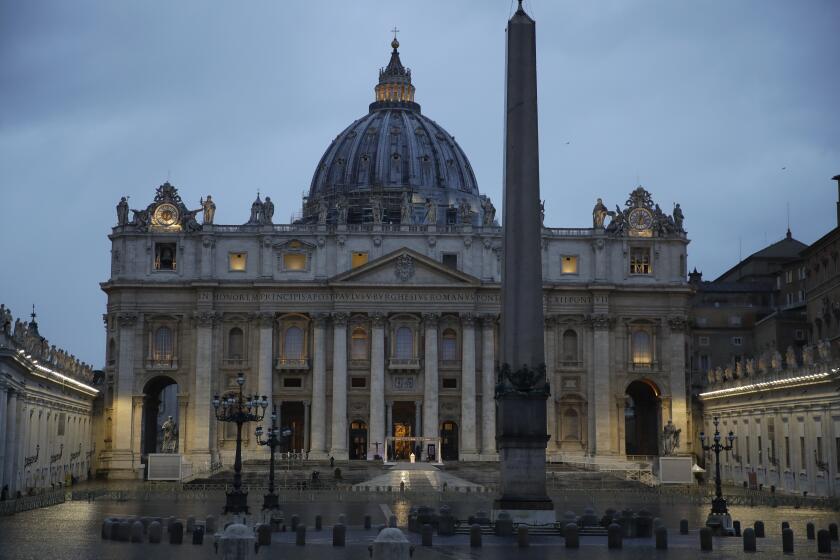The GOP must shed neocons
The founders envisioned a federal government constitutionally limited to defending our rights to life, liberty and the pursuit of happiness. For that to happen, we must have at least one political party that strongly advocates limiting the power of government. For much of the 19th century, that party was the Democrats. For the early part of the 20th century and from the early 1960s through 1988, that party was the Republicans.
Today, it is difficult to find noninterventionists in either party.
The Democrats demonstrate a disdain for capitalism, free trade and the validity of contracts. They cheer the restriction of certain types of speech on campus and in federal law, and think nation-building is our moral obligation, even when there is no discernible U.S. interest involved. Lately, the Democrats have been popularly associated with principled opposition to waging war in far-flung corners of the globe. But evidence on the ground today tells a somewhat different tale.
As for the GOP, it has outwardly abandoned the limited-government principles of Barry Goldwater and Ronald Reagan. Little other evidence is needed than the Medicare prescription drug benefit -- with its $13-trillion unfunded liability -- passed with a strong-arm campaign by the Bush White House and a Republican congressional majority.
What happened to the Republicans? Well, the two Bush presidencies didn’t help. Neither did the supply-side movement, focused on tax cuts and economic growth. Supporters of those ideas didn’t talk about spending cuts, much less the proper role of government. They had the effect of replacing “liberty” as the motivating force behind the GOP with “growth,” a somewhat less-inspiring ideal.
But perhaps most pernicious has been the role played by the neoconservatives. The late William F. Buckley used his conservative flagship publication, National Review, to make anti-communism the litmus test for joining the conservative movement. Dealing with the Soviets during the Cold War was clearly an important task, but it should not have opened the door of the limited-government movement to the neoconservatives, who are now -- and always have been -- advocates of big government. With the neocon foot in the policymaking door after the Cold War ended, the drumbeat for war in Iraq began in earnest a decade before 9/11.
It is important to realize that neocons are not just nation-building, America-first advocates. They like big government across the board. No Child Left Behind, the thinly disguised effort to nationalize education in America, was principally a neocon initiative. Consider this comment from the late Irving Kristol, self-described “godfather” of the neoconservative movement: “Neocons do not feel that kind of alarm or anxiety about the growth of the state in the past century, seeing it as natural, indeed inevitable.” Indeed.
There is an insidious philosophy underlying this acceptance of the “natural” growth of statism. Neoconservative columnist David Brooks wrote in the late 1990s that we need “a vigorous One Nation Conservatism that will connect a revived sense of citizenship with the long-standing national greatness Americans hold dear.” In another essay, he wrote: “Ultimately, American purpose can find its voice only in Washington. ... Individual ambition and willpower are channeled into the cause of national greatness. And by making the nation great, individuals are able to join their narrow concerns to a larger national project.” A frightening worldview.
Which brings us to the war in Afghanistan. The neocons are predictably enthused about the prospect of a prolonged U.S. occupation there. A dozen or so of them recently sent a letter to President Obama urging him to up the ante. Astonishingly, the president who was elected as the antiwar left’s protest candidate appears poised to take the neocons’ advice and commit tens of thousands more troops to a conflict in which immediate U.S. interests are unclear at best.
Meanwhile, Obama’s domestic agenda is in shambles. Americans are outraged at the prospect of trillion-dollar deficits, auto bailouts and the subsidies to irresponsible bankers. And they don’t want socialized medicine.
The “tea parties” and town hall meetings are essentially libertarian. There is no conservative policy agenda -- only a demand that the government stop trying to run our lives.
Republicans should take this opportunity to return to their traditional noninterventionist roots and throw their neoconservative wing under the bus. The Republicans have a chance at this moment to reclaim the mantle of the party of nonintervention -- in your healthcare, in your wallet and in the affairs of other nations.
More to Read
Get the L.A. Times Politics newsletter
Deeply reported insights into legislation, politics and policy from Sacramento, Washington and beyond. In your inbox three times per week.
You may occasionally receive promotional content from the Los Angeles Times.






